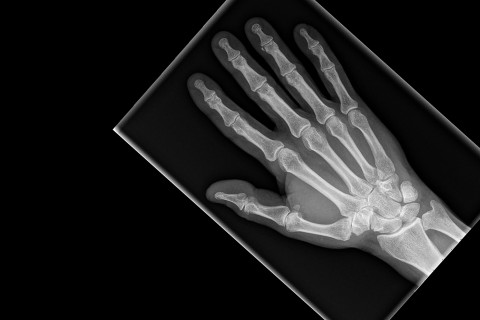The University of Eastern Finland will host Finland’s first cartilage tribology laboratory. The laboratory aims at a better understanding of articular cartilage friction, lubrication and wearing. By studying how cartilage responds to damage, researchers seek to tackle arthritis and the progression of osteoarthritis, and find solutions for their cure. The Instrumentarium Science Foundation awarded 100,000 euros to Janne Mäkelä, PhD, for the establishment of a new research area.
A normal joint allows for movement between the ends of two bones. Typically, bone ends are covered by articular cartilage and connected by a closed joint capsule that secretes synovial fluid. Synovial fluid provides lubrication and reduces friction during movement, and it also nourishes articular cartilage. Synovial fluid contains hyaluronan, biopolymer that is highly efficient in reducing friction between cartilage surfaces. Osteoarthritis, however, reduces the lubrication capacity of synovial fluid. Proceeding slowly over the years, osteoarthritis causes soreness, pain and reduced joint mobility, and it weakens functional capacity.
There is no cure for osteoarthritis. One form of treating pain has been injecting the affected joint with a synovial fluid substitute derived from the biological hyaluronan. However, the evidence relating to the benefits of this viscosupplementation treatment is proving contradictory. As an alternative, researchers have started developing synthetic lubricants. This line of development has made rapid progress over the past decade, filling the gap in treatment. However, the optimisation and proving the effectiveness of these in physiological lubrication is challenging. Articular cartilage is complex water filled fibril-reinforced poroviscoelastic material whose friction cannot be described with conventional lubrication theories.
The Instrumentarium Science Foundation awarded Janne Mäkelä, PhD, an Instrufoundation Fellow grant of 100,000 euros, intended for bringing new national and international expertise in the research area, and for establishing Finland’s first cartilage tribology laboratory at the University of Eastern Finland. Mäkelä’s doctoral dissertation focused on structural and functional changes in articular cartilage in osteoarthritis. After defending his dissertation, he has been developing a comprehensive theory for articular cartilage lubrication research at Harvard University in the US. The development of the theory continues in this new research area, as Mäkelä will combine traditional mechanical and imaging methods with computational modelling.
Reduced functional capacity is the most important – or at least the most expensive – consequence of osteoarthritis. The need for treatment of arthritis and osteoarthritis increases as the population ages. Currently, 6 per cent of all disability pensions are granted on the basis of osteoarthritis. Overall, osteoarthritis can be regarded as a public health problem resulting in an annual loss of nearly one billion euros.
“Musculoskeletal issues and disorders cause great costs for our society. The Instrumentarium Science Foundation wants to do its part by funding initiatives that can enhance the well-being of patients and reduce societal costs,” says Docent Markku Mäkijärvi, Chair of the foundation's board.
All in all, the grants awarded by the Instrumentarium Science Foundation amounted to 975,000 euros.
For further information, please contact:
Markku Lämsä, PhD, Instrumentarium Science Foundation’s representative, email: markku.lamsa (a) instrufoundation.fi
tel. +358 40 501 5800
Awardee
Janne T.A. Mäkelä, PhD, University of Eastern Finland,
email: janne.makela (a) uef.fi
tel. +358 44 020 4034
A list of all the awardees can be found on the foundation’s website at www.instrufoundation.fi
The mission of the Instrumentarium Science Foundation is to promote and support medical, technical and scientific equipment and methods related research and economic research in these fields through grants.


